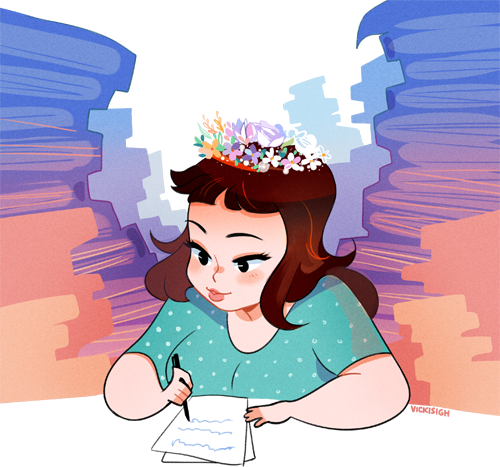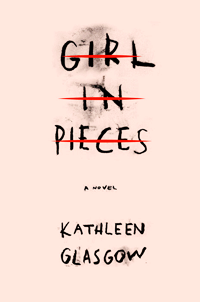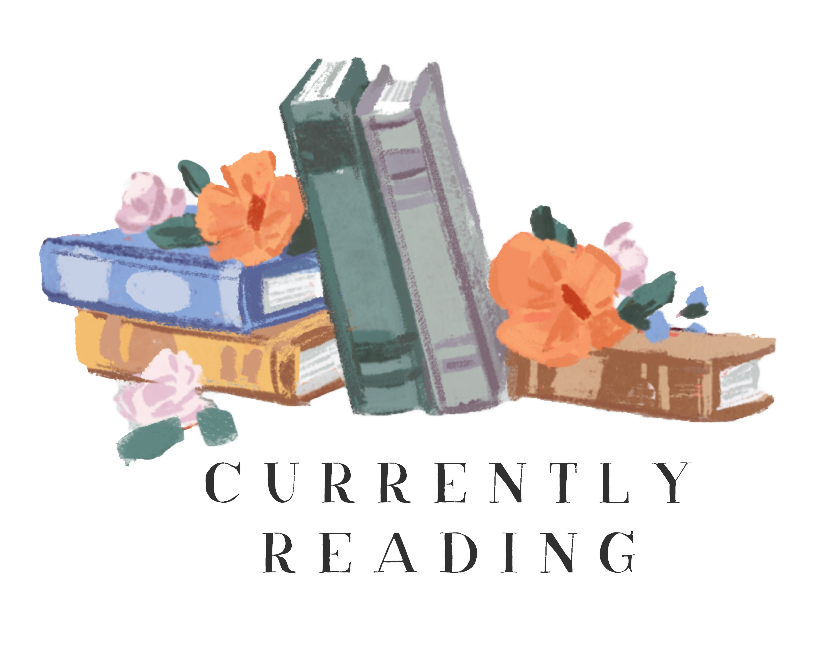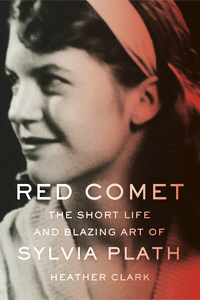
Title Girl In Pieces
Author Kathleen Glasgow
Published August 30th, 2016 by Delacorte Press
Pages 416 Pages
Intended Target Audience Young Adult
Genre & Keywords Contemporary, Realistic Fiction, Mental Illness, Self-Harm
Part of a Series? No
Source & Format Received an ARC from a friend (Thanks, Ashley!), Paperback
Find It On Goodreads ● Amazon.com ● Chapters ● The Book Depository

Charlotte Davis is in pieces. At seventeen she’s already lost more than most people lose in a lifetime. But she’s learned how to forget. The broken glass washes away the sorrow until there is nothing but calm. You don’t have to think about your father and the river. Your best friend, who is gone forever. Or your mother, who has nothing left to give you.
Every new scar hardens Charlie’s heart just a little more, yet it still hurts so much. It hurts enough to not care anymore, which is sometimes what has to happen before you can find your way back from the edge.
A deeply moving portrait of a teenage girl on the verge of losing herself and the journey she must take to survive in her own skin, Kathleen Glasgow’s debut is heartbreakingly real and unflinchingly honest. It’s a story you won’t be able to look away from.

Please Note: Girl In Pieces might prove triggering for some readers with a history of self harm or suicidal ideations.
The girls here, they try to get me to talk. They want to know What’s your story, morning glory? Tell me your tale, snail. I hear their stories every day in Group, at lunch, in Crafts, at breakfast, at dinner, on and on. These words that spill from them, black memories, they can’t stop. Their stories are eating them alive, turning them inside out. They cannot stop talking.
I cut all my words out. My heart was too full of them.
When seventeen-year-old Charlotte “Charlie” Davis wakes up to find herself in the self-harm unit of Creeley Centre, a psychiatric hospital, she isn’t quite sure what to think. Struggling with depression and selective mutism after a failed suicide attempt and a myriad of trauma in her personal life, Charlie is nonetheless thankful for the stability and guidance that the hospital provides. This is a far cry from the dangers and difficulties of living on the street as she has been forced to do before. It isn’t until Charlie’s health insurance runs out and she is forced to leave the safe confines of Creeley Centre that she is faced with her most difficult challenge yet as Charlie must apply all she has learned in treatment in the real world. With few remaining ties to Minnesota and a contentious relationship with her mother which makes returning home a virtual impossibility, Charlie decides to begin again in Arizona where she quickly seeks solace in the arms of Riley, an aging musician whose undeniable potential has been lost in an increasingly worse case of substance abuse. As these two broken souls become closer, however, Charlie will eventually learn that recovery can not be found in the arms of a virtual stranger, the broken shards of a mason jar, or the bottom of a bottle, but deep within oneself. Laurie Halse Anderson meets Sylvia Plath in Girl In Pieces, a poignant, sensitive and heart-wrenching examination of mental illness, self-harm and recovery in a contemporary young adult debut perfect for fans of Girl, Interrupted.
“You girls today. You make me so fucking sad. The world hurts enough. Why fucking chase it down?”
One of the most noble and extraordinary things about literature is its ability to explore the lives of those whose stories might otherwise go untold and Kathleen Glasgow’s Girl In Pieces is no exception. While novels about cutting and self-harm have been published before – Cut by Patricia McCormick, Scars by Cheryl Rainfield and Impulse by Ellen Hopkins, just to name a few – books on this subject are still a relative rarity, especially when one considers that one in two hundred girls between the ages of 13-19 self harm, and 70% of those who do are cutters (As quoted in the author’s note at the conclusion of the novel). In her 2016 debut, Glasgow offers readers a deeply empathetic portrait of a young girl valiantly attempting to heal the wounds of her past and embrace the possibility of her future. Charlie Davis is a character of few words, but for whom even the unspoken speaks volumes. Suffering from selective mutism and episodes of dissociation as a means of coping with the trauma she has experienced, there are portions of the novel in which the protagonist is left silently observing – and even actively detached – from the world around her. It is a testament to Glasgow’s incredible skill as a writer that despite this, however, these passages never prove alienating or distancing. Every stage of Charlie’s recovery is recorded in meticulous detail which forges an immediate bond between protagonist and reader and transforms ordinarily mundane activities – the finding of shelter, the procurement of food, etc – into monumental triumphs as the reader becomes increasingly invested in Charlie’s success. Because of the confessional, intimate manner in which the story is related, Glasgow transforms the perspective of the reader from voyeur to participant as the audience is made to feel as though they are not merely witnessing the events of the novel, but actively experiencing them firsthand, making them feel complicit in Charlie’s good – and bad – choices to deeply emotional, and visceral, effect.
“Everyone has that moment, I think, the moment when something so…momentous happens that it rips your very being into small pieces. And then you have to stop. For a long time, you gather your pieces. And it takes such a very long time, not to fit them back together, but to assemble them in a new way, not necessarily a better way. More, a way you can live with until you know for certain that this piece should go there, and that one there.”
Girl In Pieces is a difficult and challenging read, but never unfairly so, and should be commended on the breadth and depth of the subject matter it explores. In it, debut author Kathleen Glasgow touches upon issues of self-harm, suicide, sexual assault, substance abuse and homelessness without ever appearing proselytizing, sanctimonious or inaccessible. Rather, far from sensationalising or capitalizing upon the suffering of others for entertainment purposes, Girl In Pieces instead offers tangible coping mechanisms and strategies for readers in a situation similar to Charlie’s. This is due in large part to Glasgow’s conscious, positive portrayal of therapy and the value the novel places in artistic expression (i.e. the visual arts and music) as a means of deconstructing and expressing feelings one might otherwise struggle to vocalize. Moreover, Girl In Pieces is a novel greater than the sum of its parts as the author uses the aforementioned issues to explore universal truths about loneliness, identity, community, and belonging. These ideas are conveyed in sparse, diary-like entries reminiscent of the lyricism of poetry, which organically allow the story to dictate the narrative structure. While Girl In Pieces will undoubtedly face opposition when being proposed for circulation in public education circles due to its use of explicit language and the often graphic nature of subject matter it examines, I would not hesitate to press this book into the hand of every teen as I have no doubt there are innumerable young readers for whom Charlie’s journey will provide a great deal of visibility, comfort, and hope.
People should know about us. Girls who write their pain on their bodies.
A modern classic in the same vein as Speak and Go Ask Alice, Kathleen Glasgow’s Girl In Pieces is a haunting, visceral portrait of one young girl’s valiant journey to recovery in a novel that explores themes of hope, healing, and community. The stakes have never been higher than in this life-changing – and life-saving – debut as, for Charlie Davis, coming of age means first determining how to survive in a world that can be every bit as cruel, disinterested and destructive as it is inspiring, heartening and limitless. Glasgow captures the triumphs and failures of adolescence and the human experience in a cathartic, unvarnished but ultimately optimistic tale that reminds readers there is light at the end of even the darkest of tunnels. The world is a better and more beautiful place because this book is now in it.
PLEASE NOTE: All quotations included in this review have been taken from an advance reader copy and therefore might be subject to change.



Still not sure this is the right book for you? Why not listen to what some other bloggers had to say about it?
● Amanda @ Teen Librarian Toolbox wrote “People bend, break, leave, disappoint, hurt, die, suffer, and harm. In most cases, they also heal, change, recover, and hope in this astoundingly sad, astonishingly poignant debut.” (Read the rest of the review Here!)
● Willa @ Willa’s Ramblings wrote “It understands what it’s like to be human, to suffer, to want to heal, to struggle to keep it together. It understands what it’s like to start over, to find new friends, to find the good in people. It is real.” (Read the rest of the review Here!)
● Nancy @ Tales Of The Ravenous Reader wrote “This is a story of mental health that gets it right, not because the adults are so great and because the person gets what they need (they aren’t and she doesn’t), but because Charlie navigates through this period of time and comes out at the end. Sometimes that’s all you can hope for. And it’s enough.” (Read the rest of the review Here!)












2 Responses
Girl in Pieces sounds like such a strong contemporary read! I’ve heard a lot of really great things about it, but your review has made me SO much more curious and I think I might have to read this story for myself!
Alexa S. recently posted…Alexa’s Adventures #4
I read this book recently and by the end I was crying because of how strong Charlie actually is, even if she didn’t show know it. I applaud the author on writing such and amazing book.